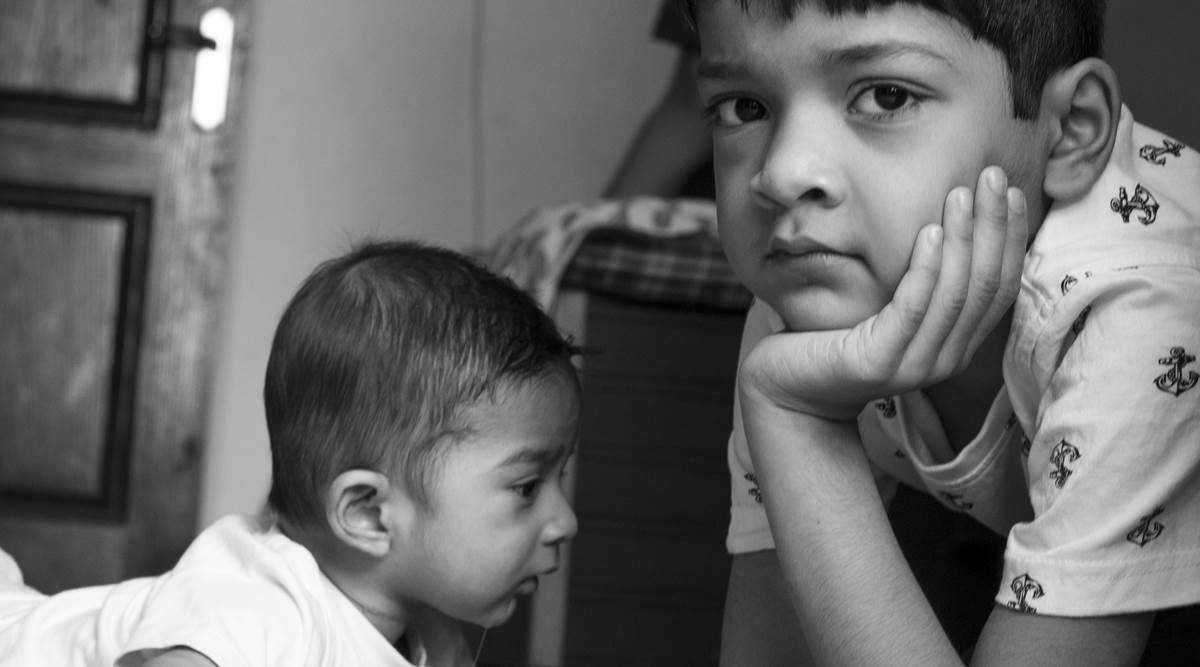With loss of peer to peer interaction, no outdoor play or physical activity, increased screen time and disturbed daily routines, children are unable to vent out their energies and are getting affected emotionally

By Dr Vikas Taneja
The COVID-19 pandemic has affected us both physically as well as emotionally, be it adults or children. The lockdown was a big transition, necessitating variable degrees of adjustments. This ‘adjustment’, by definition, is stress. For children, uncertainty, social isolation, lack of peer to peer interaction and no outdoor activities have led to signs of irritability, boredom, anxiety, depression, stress, fear, worry, and other negative feelings. Another point of debate is “Does personality (introvert/ extrovert) influence how children are handling this pandemic or is the pandemic making children introverted?”
There’s a lot of confusion about introversion and extroversion. The difference lies in what somebody finds stimulating as opposed to exhausting. Extroverts need other people and their chitchat to get energy. Solitude easily becomes loneliness for them. Introverts, on the other hand, are opposite. They need to be alone, or with a few people whom they know intimately, to recharge their batteries.
At the start of pandemic and subsequent lockdown, many believed introverts would fare better mainly because of their personality trait. But a recent study that surveyed > 1000 American adults, suggests the opposite. It was seen that those who scored higher on the measure of extroversion were less likely to experience mental health issues. Experts have contributed this to extroversion being associated with more positive emotions, optimism and resiliency, while introversion has been linked to more nervousness and fear.
ALSO READ | Braving the pandemic: How severe is the impact of COVID-19 on children in India?
For children, the whole issue becomes more complicated. With loss of peer to peer interaction, no outdoor play or physical activity, increased screen time and disturbed daily routines, children are unable to vent out their energies and are getting affected emotionally, irrespective of age or personality. Secondly, children always look up to their parents for solutions and if parents are disturbed or stressed, children show more severe reactions. Experts have argued that such situations would affect extrovert children more, making them vulnerable to either becoming too aggressive or introverted. However introvert children are also facing equal difficulties.
Recommended coping strategies
Every family is unique and has its own way of dealing with stress. It’s not a “one size fits all” situation. Following are simple strategies recommended to maintain good mental health:
-
Try to maintain normalcy as far as possible – family meal times, normal sleep and wake up time, exercise, getting dressed before starting office/ school work, etc.
-
Parents need to be calm and patient with children. Venting out anger and frustration on the child can make matters worse. During stress, meditation can be really helpful.
-
Families are encouraged to use such times to strengthen family bonding. Simple activities like playing board games, watching movies, reading inspiring stories, preparing meals together, singing, dancing and listening to music will help to keep a positive attitude.
-
Answer the child’s questions in a developmentally appropriate language. Fear and uncertainty should be explained to the child in a positive manner.
-
It is recommended that families maintain their social ties through various means such as phone/ video calls, chatting with friends and extended families.
-
Limit screen time, especially social media and news channels, and avoid spreading unverified information.
-
Radical acceptance of the changed situation and working on the problem solving skills with a positive attitude are good ways to cope with the stress. Professional help can be taken if needed.
(The writer is HOD and Consultant Pediatrics, HCHCT Manipal Hospitals, Delhi Dwarka)
Source: Read Full Article
